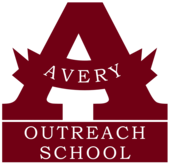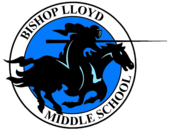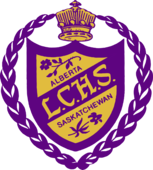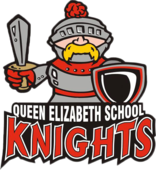Administrative Procedure 360
Student Assessment for Schools
Background
The Lloydminster Public School Division believes all assessment supports student learning. The Four Foundations of Assessment are as follows:
- Attitudes and actions about assessment reflect the believe that all students are capable of learning.
- Teachers are responsible for using assessment information in partnership with students in order to engender a positive affective response.
- Students are activity encouraged to persevere when challenged and to value the learning process.
- Parents/caregivers are informed and actively encouraged to use assessment information as a positive means to support their child's growth and learning.
- Schools provide high quality learning opportunities for every student.
- The primary purpose of classroom assessment is to inform instruction and enhance learning.
- Teachers are cognizant of the purpose of the assessments they develop, and can articulate what the assessments will tell them about their students' learning in relation to the curriculum.
- The teacher is a "user" of assessment information, not just a recorder of it. The majority of classroom time is spent acquiring and acting on information gathered from informal classroom assessments.
- Teachers use assessment information to determine where individual students are at and where they need to go in terms of their learning.
- Assessment for Learning strategies are evident in every classroom, every day, for every student.
- Students have a clear understanding of what they are expected to learn.
- Students engage in strategies for both self and peer assessment.
- Students are provided with frequent feedback that is specific, timely, and designed to help them know what they need to do to improve their learning.
- Students are engaged in purposeful classroom discussions that are designed to elicit evidence of learning.
- Assessment of Learning is fair and flexible.
- Assessments are completely aligned to the curriculum outcomes.
- Grading practices reflect the standards embedded in curriculum and emphasize the most recent and consistent evidence of learning.
- Decisions about students are based on a variety of evidence.
- Assessments are purposefully designed in ways that motivate and challenge students, and are respectful of student diversity.
- Students are provided options in how they demonstrate their learning.
- There is recognition of the differences between classroom based and large scale assessments, and an appreciation of how results of each of these can be used to further student learning.
Procedures
- Procedures and practices will be established within the school to support Assessment for, of, and as Learning.
Assessment of Learning
- Principals will ensure teachers use Assessment of Learning strategies as an integral part of instruction and learning.
- The Assessment of Learning will reflect the relative importance of learning outcomes.
- Teachers will assess students' performance and determine their achievement across the range of learning outcomes. Most assessments will assess a number of integrated outcomes. Not every outcome will be assessed for a grade/achievement level.
- Assessment tasks and instruments must assess enduring understandings and transferable skills.
- Assessment tasks and instruments must be valid and reliable and clearly linked to identified learning outcomes.
- Assessment tasks and instruments must be reviewed on an ongoing basis for validity and reliability.
- Assessment tasks and instruments must recognize cultural diversity wherever possible and be sensitive to gender or ethnic bias.
- Teachers will assess students' performance and determine their achievement of learning outcomes at the grade level assigned for their instruction.
- Teachers will select assessment methods that are compatible with the learning outcomes being assessed.
- Teachers will communicate information about students' achievement separately from other information, such as students' progress, effort, or learner attributes. Common indicators are used to assess non achievement performance, such as social growth and work habits.
- Teachers will determine students' achievement independently of the achievement of other students. That is, if students meet the standard, they receive the grade regardless of how many other students meet the same learning outcomes.
- Principals will ensure teachers inform and actively involve students in their own Assessment of Learning.
- Teachers will establish with students clear performance and achievement standards, based on learning outcomes. Teachers will assist students in articulating what they need to know and be able to do and to what degree.
- Teachers will inform students on an ongoing basis of how their achievement will be determined.
- Teachers will provide students with clear descriptions of performance criteria and standards, through such tools as rubrics and exemplars, prior to assessment tasks.
- Principals will ensure teachers provide students opportunities to demonstrate their best achievement.
- Teachers will use a variety of assessments.
- Teachers will ensure students receive appropriate accommodations to complete assessments.
- Teachers will ensure students have sufficient assessment for learning opportunities before Assessment of Learning occurs.
- Teachers' assessment of students' learning in enrichment programming will be based on their achievement of the learning outcomes in the Ministry of Education curriculum. Students who complete assessment requirements for an external examining body, such as Advanced Placement or International Baccalaureate, will attain that credential in addition to, and independent of their achievement in the corresponding curriculum.
- Principals will ensure that procedures and supports are in place within the school to enable the collection of reliable body of evidence to determine students' summary grades.
- Teachers will ensure that Assessment of Learning is valid and reliable by excluding from students' summary grades the following: bonus marks, effort marks, group awarded marks, deductions for late assignments, and deductions for assignments not completed.
- Students should be held accountable for the behaviour that resulted in a late, incomplete, or missed assignment. In some cases, such as for academic dishonesty, the student should face consequences at the school level that address the behaviour.
- When student achievement has been reported as Incomplete (I) and students fail to submit a sufficient number of assessments of learning for grading purposes, and every effort to obtain the assessments(s) has been exhausted, upon consultation between the Principal and teacher, a mark of zero may be applied.
- Teachers will triangulate assessment information.
- Teachers will retain assessment records in indirect forms, such as anecdotal notes, recordings, rubrics, and percentage scores.
- When percentages are used for final grades, the Principal will consult with the teacher about raising marks that border pass/fail. (ie: 48% or 49% becomes 50%)
- Teachers may use the evidence that supports their most accurate judgement about students' achievement of learning outcomes. (ie: a teacher may exclude an assessment that contradicts achievement consistently demonstrated by a student when determining a final grade, or determine the student grade on the most recent assessment evidence)
- Final assessments should be comprehensive and may be administered to students in several forms. (ie: a final assessment may be a performance task to measure skills, an exit portfolio, an interview, or an examination)
Assessment for Learning
- Principals will ensure teachers use Assessment for Learning strategies as an integral part of instruction and learning.
- Teachers will use a variety of methods to gain insights into students' interests and learning profiles for the purpose of planning assessment.
- Teachers will use assessment to help drive their instruction to meet diverse student needs.
- Teachers will monitor students' actions and performance on an ongoing basis to determine and respond to their learning needs.
- Teachers will provide time and opportunities for students to internalize their learning through the use of feedback and guided practice to independence. Teachers provide assessment for learning tasks that allow risk taking and exploration in learning.
- Teachers will prepare students for Assessment for Learning by providing assessment for learning tasks that are similar in form and content.
- In some cases, when mastery of learning outcomes is noted during Assessment for Learning, a teacher may use this as Assessment for Learning evidence.
Assessment as Learning
- Principals will ensure teachers use Assessment as Learning strategies as an integral part of instruction and learning.
- Teachers will ensure that Assessment as Learning is an integral part of students' learning experiences and teach students to use a variety of Assessment as Learning strategies to move from support to independence.
- Teachers will provide students with feedback that describes, in a clear and understandable way, students' current performance relative to learning outcomes.
- Teachers will teach students to become aware of their own learning strengths and needs and to identify their own progress toward learning outcomes.
- Teachers will teach metacognitive skills, such as self-monitoring, visualizing, and making judgements.
- Teachers will support students in establishing achievable personal learning targets.
- Communication and Reporting
- Principals will ensure timely communication with parents/caregivers about students'
learning.- Principals will ensure that the schedule for final assessments and report cards is communicated to students and parents/caregivers.
- Teachers will employ a variety of strategies to communicate student progress and achievement to parents/caregivers in a timely manner.
- Teachers will communicate in a sensitive and positive manner about student achievement.
- Teachers will communicate information about students' achievement separately from information about progress, effort, or learner attributes.
- Teachers will inform parents/caregivers and students about the achievement standards.
- Students who are unable to write a final assessment because of serious illness, injury, bereavement, or other compelling reasons for which sufficient cause is demonstrated, should apply to the Principal who determines if an alternative final assessment is appropriate.
- Principal determined accommodation may take the form of:
- An exemption from the final assessment, if sufficient assessment evidence is available to determine students' achievement of the learning outcomes.
- An equivalent final examination or the same final assessment administered under secure conditions.
- Report cards will be issued a minimum of twice during a school year, however, parents can check on progress through the Edsby portal at any time throughout the year, with a minimum of weekly updates by teachers.
- The report cards and Inclusion and Intervention Plan (IIP) are complementary documents for students identified with intensive needs. An Inclusion and Intervention Plan is based on diagnostic information and provides the basis for intervention strategies.
- When implemented, a parent/caregiver signed Record of Adaptations must be included with report cards.
- Students who have not completed a sufficient number of assessments for the assessment of their achievement may have their achievement reports show a mark of as Incomplete (I) until these assessments have been completed.
- Formal parent/caregiver/teacher/student conferences will be held a minimum of two (2) times per year.
- Principals will ensure timely communication with parents/caregivers about students'
- Appeals
- Principals will ensure that appeals are dealt with in a timely manner according to appeal procedures.
- Every student and/or parent/caregiver has the right to appeal final assessment results to the Principal. Information regarding the appeal procedures is to be made available to students and parent/caregiver (unless students are independent). If the student and parent/caregiver are not satisfied with the decision made at the school level, they may appeal to the Superintendent of Education. Refer to Board Policy 13 - Appeals and Hearings Regarding Student Matters.
- Appeal Procedures:
- The student and/or parent/caregiver may appeal a school awarded final course grade, final examination mark, or a course or program placement. This appeal must be submitted in writing to the Principal within sixty (60) days of the assessment results being made available. Once received, a decision on the appeal must be made in writing within ten (10) school days. In reviewing an appeal, the Principal will:
- Meet with the student and parent/caregiver (unless the situation involves an independent student);
- Consult with appropriate teachers to review assessment information; and,
- Submit, in writing to the student, parent/caregiver (where applicable) and teacher(s), a decision regarding the appeal.
- The student and/or parent/caregiver may appeal a school awarded final course grade, final examination mark, or a course or program placement. This appeal must be submitted in writing to the Principal within sixty (60) days of the assessment results being made available. Once received, a decision on the appeal must be made in writing within ten (10) school days. In reviewing an appeal, the Principal will:
- Principals will ensure that appeals are dealt with in a timely manner according to appeal procedures.
- Placement
- Decisions concerning course, grade, and program will be made in consultation with the student (where appropriate), parent/caregiver (unless the student is independent), and teachers and Principal. These decisions will be the result of ongoing communication between the school, student, and parent/caregiver.
Definitions
Assessment as Learning (a component of formative assessment) - the collection and use of assessment information by students to learn about their learning processes in order to plan, regulate, and reflect on their own learning and metacognitive strategies.
Assessment for Learning (a component of formative assessment) - the collection and use of assessment information by teachers to adjust teaching for the purpose of improving students' learning. This process involves the ongoing exchange of information among the teacher and students. This information is not usually used for grading and reporting.
Assessment of Learning (also known as summative assessment) - the collection and use of assessment information by teachers to make judgements about students' achievement at key points during and at the end of a cycle of instruction, for the purpose of grading and reporting.
Reliability - an assessment method is reliable if teachers accurately and consistently apply achievement standards. An assessment cannot be valid if it is not reliable.
Triangulation of Evidence - describes evidence accumulated from three main sources: observation of students' learning, conversations with students, and students' products, over a period of time, which are judged collectively to ensure validity and reliability of assessment.
Validity - as assessment method is valid if it measures student achievement of the learning outcomes that the assessment was intended to measure. It also means that an overall judgement of student achievement is based on representative and varied body of assessment information.
Achievement Standards - performance variables that describe levels of student performance.
Learning Outcomes - curricular statements that describe significant and essential learning that students reliably demonstrate at various times throughout the school year or by the end of a course or program.
Revised
March 2022
August 2023





























